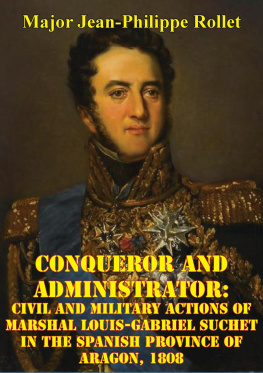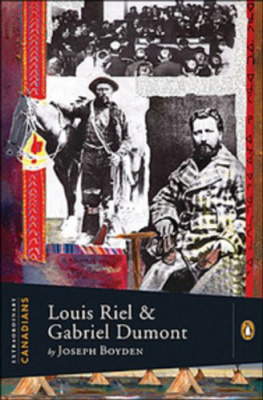This edition is published by PICKLE PARTNERS PUBLISHING www.picklepartnerspublishing.com
To join our mailing list for new titles or for issues with our books contact@picklepartnerspublishing.com
Text originally published in 1896 under the same title.
Pickle Partners Publishing 2013, all rights reserved. No part of this publication may be reproduced, stored in a retrieval system or transmitted by any means, electrical, mechanical or otherwise without the written permission of the copyright holder.
Publishers Note
Although in most cases we have retained the Authors original spelling and grammar to authentically reproduce the work of the Author and the original intent of such material, some additional notes and clarifications have been added for the modern readers benefit.
We have also made every effort to include all maps and illustrations of the original edition the limitations of formatting do not allow of including larger maps, we will upload as many of these maps as possible.
MEMOIRS OF THE WAR IN SPAIN, FROM 1808 TO 1814,
BY
MARSHAL SUCHET,
DUKE DALBUFERA.
TN TWO VOLUMES.
VOL. II.
Contents
Letters front the Minister at War to Marshal Suchet, duke of Albufera.
MEMOIRS OF MARSHAL SUCHET.
CHAPTER XI.GENERAL SUCHET IS ORDERED TO BESIEGE TARAGONA.
General Suchet is ordered to besiege Taragona.The 3rd corps assumes the name of Army of Aragon.its new organization.Preparatory arrangements for the siege.Surprise of Figueras.General Suchet determines on the immediate siege of Taragona.The Army of Aragon marches upon that fortress.Its investment.Arrival of the English fleet.Preparations for the siege.Defeat of Campoverde under Figueras.Battle of the Rapita under Tortosa.Description of Taragona.Fort of the Olivo.First operations of the siege.Sorties of the garrison.Opening of the fire.Assault and capture of the Olivo.
EVER since the reduction of Tortosa, General Suchet had been scouring part of the two Castiles and of Navarre, of the country of Valencia and of lower Catalonia, with corps of cavalry and infantry. He sought by rapid marches to destroy the parties which were collecting in those different provinces, and incessantly attempting to penetrate into Aragon. Another object which he had in view was to ensure the subsistence of the 3rd corps, by protecting the administration by the presence of the troops. He wished, lastly, to facilitate the provision of the large supplies of grain requisite for the subsistence of the army of Marshal Macdonald, during the siege of Taragona, which it was about to undertake. In consequence of these measures twenty-five thousand quintals of wheat had already been collected at Mora and Lerida.
A considerable matriel of artillery had been brought together at Tortosa and put into good condition: a great quantity of implements, sandbags and other articles, composing the matriel of the engineer department, had been made at Saragossa, and conveyed also to Tortosa. These necessaries had been provided, not without difficulty, but without expense to France; for the army, though acting at no great distance from the Pyrenees, was supported upon that part of our frontiers which is most destitute of military establishments: it was obliged to create its own resources for the supply of those munitions which elsewhere are furnished in abundance by the arsenals of Douay, Metz, and Strasburg. Ever since the invasion of Spain in 1808 and 1809, the fortress of Pampeluna had supplied us with artillery, muskets, projectiles, and stores. Victory had subsequently increased our means: the reduction of Lerida, Mequinenza, Tortosa, and the col de Balaguer, had put us in possession of a numerous artillery. The siege equipage assembled at Tortosa was disposable, to the amount of fifteen hundred draught horses, and a considerable corps of the artillery and engineers, the whole supported by ten battalions of infantry. These forces were ready to march upon Taragona, at the first requisition of Marshal the duke of Tarentum. The rest of the 3rd corps was to keep Aragon.
Such was the state of affairs when the emperor directed general Suchet to prepare to lay siege to Taragona, and for this operation he annexed to his command that of part of the army and province of Catalonia {1} . Marshal Macdonald.
had recently sent to Paris general Guilleminot, the chief of his staff, and was himself at Lerida with part of his troops. General Suchet hastened thither to concert the execution of these new arrangements, and to learn the state of the active forces placed under his command. They amounted to nearly seventeen thousand men.
Thus the army of Aragon, according to the denomination given to it by the government, and which it ever afterwards retained, consisting of the 3rd corps and the active troops of the army of Catalonia, was to be raised to upwards of forty thousand men of all arms, French, Poles, Italians, and Neapolitans. But it will be seen that general Suchet could not operate upon Taragona with more than half this army without danger of compromising the operation itself; for he had to provide against every contingency; and in order to reduce one town, it was necessary to hold or to overawe whole provinces.
He first directed his attention to the new organization of the army, agreeably to the knowledge which he had acquired of its elements in a first review of the troops of Catalonia.
The 16th of the French line {2} , which came from Wagram, where it had greatly distinguished itself, was all that could be wished in regard to steadiness, equipment, and instruction. The other three French regiments, the 1st light and the 7th and 42nd of the line, were not at all inferior to it in valour and devotedness; but in regard to steadiness, they were somewhat affected by the arduous warfare in which they had been for two years engaged in Catalonia. The 24th dragoons, commanded by colonel Delort, inspired confidence by its intrepidity and by the excellent spirit which its chief had the skill to keep up.
In the Italian division there were many soldiers who had distinguished themselves in the first and memorable campaign in Italy. This corps had rendered good service in Catalonia, which it had entered under the command of general Pino. It had, however, sustained considerable loss under the walls of Girona, and was reduced from thirteen or fourteen thousand men to five or six thousand. According to a particular arrangement, they were paid by the exchequer of the kingdom of Italy; their pay arrived slowly and it was several months in arrear; the soldiers were in want of shirts and their clothing was in a bad condition. The commander-in-chief lost no time in causing advances to be made to them out of the chest of the army, and supplied their most urgent wants.
The Neapolitan corps, commanded by general Ferrier, under the orders of general Compre, had improved in steadiness and discipline.
General Suchet planned a new formation of the army. He proposed to put the different regiments together without any distinction or partiality; to accustom them to do justice to one another, to consider themselves as forming one whole, to lend each other mutual support, and to absorb all rivalry in a general desire for acquiring glory. But it was not so easy a matter to accomplish its speedy re-union, and to bring together, for the purpose of fighting on the same field, troops which were so wide asunder. The active part of the army of Catalonia, which passed under the command of general Suchet, was transferred to him at Lerida on the 26th of March; but a portion set out again immediately with the Marshal duke of Tarentum to protect his return to Barcelona through Manresa. Thus it was again removed to the distance of seven marches. General Harispe, who commanded it, brought it back by Villafranca, and it was towards the middle of April when he returned.








